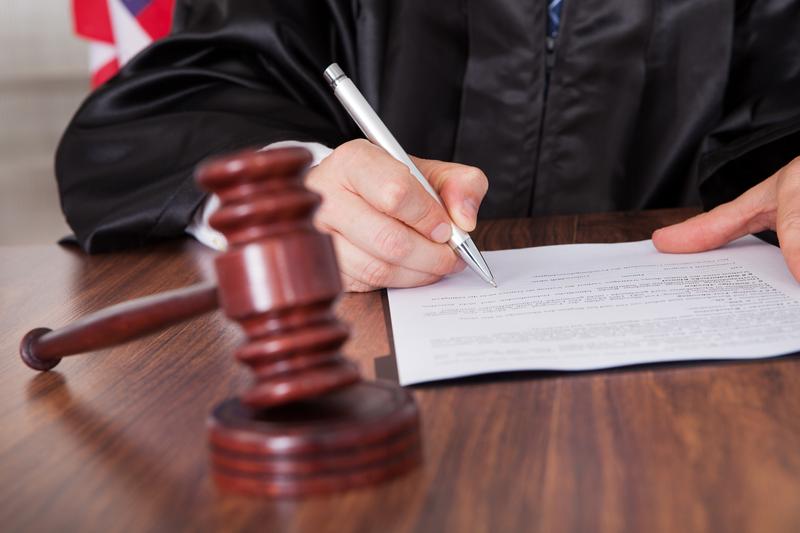
Most judges who preside over cases from divorce to murder in New York will be chosen long before voters get to the ballot box.
If you're charged with a felony in Brooklyn, you go to a sleek new building on a busy corner of Jay Street. It's the criminal division of Kings County Supreme Court, and it’s a place where Legal Aid Society attorney Josh Scheier spends a lot of time.
In a criminal case, he said, a judge’s very first decision has a huge impact.
“They make what can be the most important decision of case, which is whether or not to set bail and if so how much,” he said. Next, the judge decides what evidence to let in, and whether a search was lawful or not lawful.
Judges also weigh in at sentencing. If a defendant is charged with a violent felony, like attempted murder, he or she could get five to 25 years on that charge, Scheier explained. A prosecutor might ask for 10 years, but the judge could accept five years in a plea deal, he said.
“So they can have a very big impact on a criminal case,” he said.
With that much power, you’d think judges would be chosen with the utmost care. Judges in housing court and low-level criminal courts are appointed by the mayor. Judges in the supreme courts and the civil court are elected.
In those elections, even people like Scheier, who live and breathe the law, find themselves confused. “Even as a practicing lawyer in the criminal courts, 25 years experience ... I would go to my election as a dutiful voter and often have no idea who these people are,” he said.
And on election day there’s often no choice, such as when voters are asked to pick four judges, and there are just four names.
Those names are picked at judicial conventions, held in late September. Democrats and Republicans in each borough gather to select their candidates for the Supreme Court. Convention delegates are a mix of party officials, staffers, and activists.
Sara Shoener is the chief of operations for the New Kings Democrats, a reform Democratic club in Brooklyn. She was a delegate in 2014. She tried to research the candidates in advance.
“Three of them I liked fine enough, one of them I didn’t think was ready to be a judge,” Shoener said.
But it didn’t matter. The judges were presented as a slate, with an up-or-down voice vote. “It was a very, a very performative moment, where a huge group of people officially served as very big rubber stamp,” she said.
The slate is chosen by party leaders in each borough. Frank Carone is the law chairman for the Brooklyn Democratic party. He said county leaders go through an extensive process, voting and debating, then recommend a slate to the delegates. But both delegates and aspiring judges are free to make their own choices, Carone said.
“If a judicial candidate wants to contest, and show up, they can do it,” he said. “Nothing’s stopping anyone. There’s no arm-twisting.”
Except there’s no evidence of a single successful challenge to the party-backed candidates, according to court documents. Almost all Supreme Court justice nominations in New York are uncontested.
The convention just picks the Democratic candidates for New York Supreme Court. But with New York City’s Democratic majorities, other parties have little hope of winning a judicial election.
Also common are cross-endorsements, which put the same names on the ballot for the Democrat, Republican, Conservative, and Working Families Party lines.
The judicial election system has its critics, even among long-time Democratic activists. Robert Carroll is an election lawyer, former judicial delegate, and current Democratic candidate for the New York State Assembly.
It’s not that the judicial candidates now are bad, Carroll said. It’s that the democratic process matters.
“I do think people should have choices in elections,” Carroll said. “So that they don’t go to the ballot box in November and suddenly they see select four judges, there are four, and they are nominated on every single party line. Because that’s not democratic.”
Many people interviewed for this story said this system has put some amazing judges on the bench - thoughtful, well-informed jurists. And some who are not equipped to make the critical decisions they have to make, every day.
Haddy Badjie contributed to this story.
WNYC will continue to cover New York's judicial election process through the November elections.
